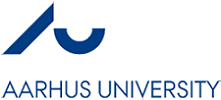Business Intelligence

Business intelligence is an umbrella term that includes the applications, people, infrastructure, tools and best practices that allow you to access and analyse information in order to improve and optimise decisions and performance. Business intelligence has become an imperative for both private and public companies and organisations and may lead to cost reductions, better and faster decision-making processes and an easier identification of new business opportunities.
The MSc in Economics and Business Administration – Business Intelligence includes a discussion of the procedural and technical infrastructure that collects and stores the data produced by company’s activities. The programme focuses on how to analyse data in order to predict and recognise patterns and on how to visualise and present results in order to support managerial decision-making.
Acquired skills and competences
The programme will give you the competences and skills you need to take up managerial positions in private and public companies as well as in consulting firms. You will be able to work with the planning and implementation of business intelligence solutions. You will be familiar with various analytical tools and know how to apply these to new cases.
Na studia magisterskie mogą kandydować wszyscy, którzy ukończyli studia licencjackie lub inżynierskie (studia I stopnia), studia magisterskie lub studiują na ostatnim roku studiów I-stopnia. Studia, które planujesz powinny mieć zbliżony profil do tych obecnych lub ukończonych, ponieważ w procesie rekrutacji kluczowa jest ich zgodność programowa.
Wykaz punktów ECTS – osoby, które są jeszcze w trakcie studiów, muszą załączyć wypis punktów ECTS, w którym będzie wykazane, jakie przedmioty były realizowane na studiach oraz ile punktów za nie otrzymano.
Dyplom ukończenia studiów licencjackich lub inżynierskich – jeśli jesteś absolwentem wyższej uczelni, nie potrzebujesz wypisu, wystarczy załączyć dyplom ukończenia studiów wraz z suplementem (w języku angielskim lub oryginał z tłumaczeniem)
Course description - należy przygotować dokument, zbierający cały sylabus ze studiów licencjackich. Takie sylabusy najczęściej są do pobrania na stronie uniwersytetu. Należy je przetłumaczyć na język angielski (można samodzielnie) i złączyć w jeden dokument. Warto też zapytać w dziekanacie uczelni, czy nie dysponują wersją angielską.
Oficjalna skala oceniania Twojej uczelni - możesz dostać taki dokument w dziekanacie Twojej uczelni lub skonstruować samodzielnie. W obu przypadkach dokument powinien zawierać pieczątkę dziekanatu.
Spełnienie wymagań w zakresie języka angielskiego można udokumentować w jeden z następujących sposobów:
IELTS – 6.5
TOEFL – 83 (Aarhus University TOEFL kod - 8935)
Uwaga: wymagania językowe mogą ulec zmianie. Przed wysłaniem aplikacji upewnij się jakie są wymagania językowe na konkretny kierunek bezpośrednio na stronie uczelni.
W przypadku zdawania certyfikatu IELTs upewnij się, czy uczelnia oprócz wymagań oceny końcowej nie ma również wymagań odnośnie ocen cząstkowych.
If you hold a programme from another university, you can have your programme evaluated at School of Business and Social Sciences, Aarhus University in order to find out if you meet the admission requirements. This evaluation will prioritize the sufficient content of the following subjects and ECTS-points.
In order to be admitted to the MSc programs students must have the following combination of courses from their bachelor’s degree:
| Marketing | 10 ECTS | Finance and Accounting | 25 ECTS (20 ECTS nuo 2015) |
| Statistics and Research Methods | 15 ETCS | Management /organisational studies | 10 ECTS |
| Managerial economics and operations management | 15 ETCS (20 ECTS nuo 2015) | Microeconomics | 5 ECTS |
| Business Economics in total | 80 ECTS |
Applicants from EU/EEA countries will be evaluated for the remaining seats on the MSc programmes. For each MSc programme a selection of specific academic areas has been chosen as specifically relevant. It is the grades from these academic areas that will be used when distributing applicants from EU/EEA countries to the remaining seats. Admission will be based on grade point average (GPA) of the specific academic area and applicants with the highest GPA will be admitted first. The calculation of the GPA will be based only on courses that have been passed and handed in documentation for by the time of the application deadline.
Selected academic areas for Business Intelligence can be found here:
MSc programme | Course areas, which will be part of the GPA |
Business Intelligence | Statistics 10 ECTS |
Along with the application the applicant must upload:
- Course descriptions in English briefly describing the contents of the applicant's specific BA courses or other information that will contribute to describing the contents of the applicant's Bachelor's degree programme (may be translated by the applicant, but certified by the applicant's university).
- Official descriptions of relevant courses to be completed after the application deadline.
- An official description of the marking scale used at the applicant's home university.
The programme will give you the competences and skills you need to take up managerial positions in private and public companies as well as in consulting firms. You will be able to work with the planning and implementation of business intelligence solutions. You will be familiar with various analytical tools and know how to apply these to new cases.
The most typical first job for a graduate with an MSc degree in Business Intelligence will typically entail specific analysis of organisational performance for decision support as part of either an external or internal consultancy function.
Below are examples of relevant job positions for graduates from the MSc program in Business Intelligence:
• Consultant;
• Quality manager;
• HR specialist;
• Market analyst;
• Data miner;
• Process manager;
• PhD Student.
